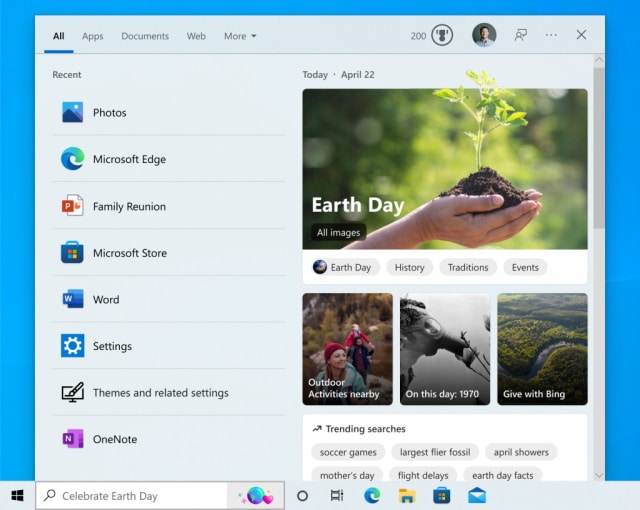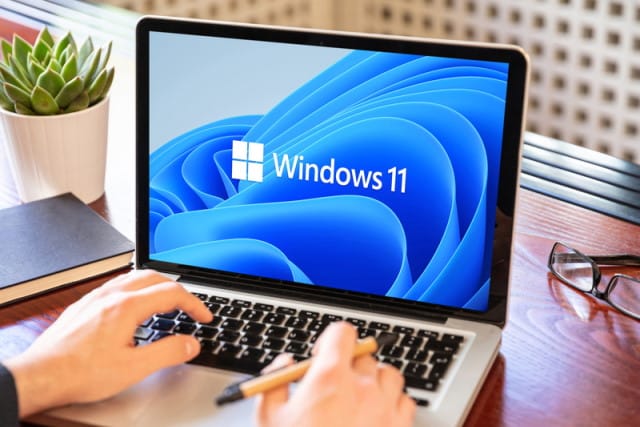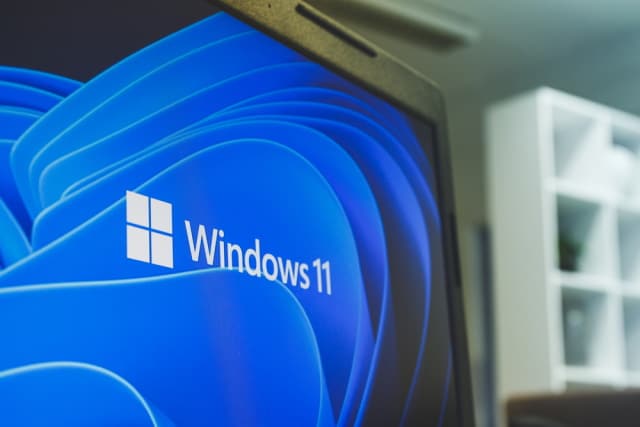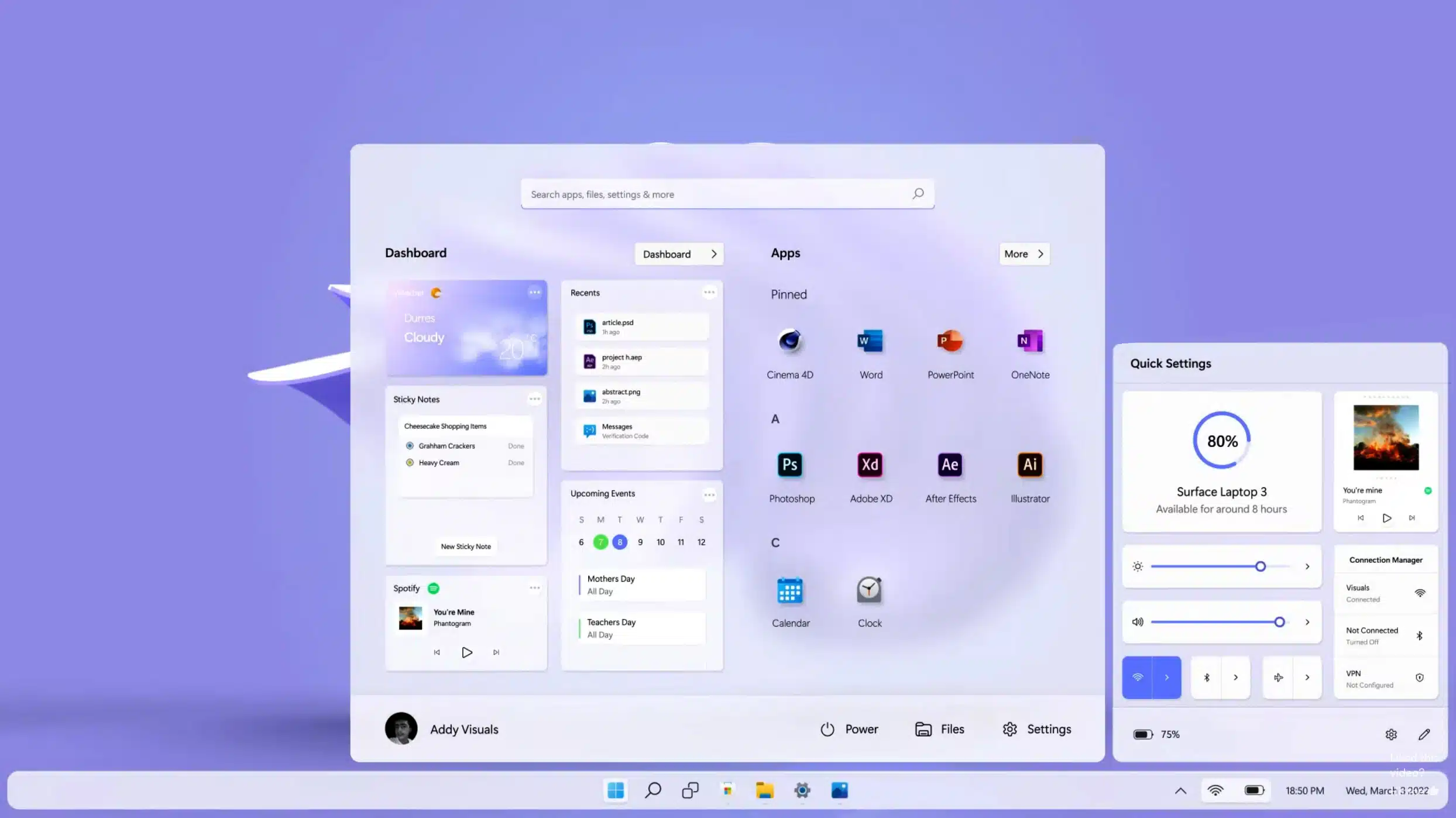
Microsoft releases KB5011543 update to bring search highlights from Windows 11 to Windows 10
There is a lot of attention focused on Windows 11 and the update releases for it, but we shouldn't forget that there are millions of people running Windows 10. Far from being a dead operating system, Microsoft is not only still producing updates, but has an active Insider program for Windows 10 that continues to see the arrival of new features and options.
The latest example of this comes with the release of the KB5011543 update which brings Windows 11's search highlight feature to Windows 10. The update includes a number of other important changes and additions, and takes the operating system up to Windows 10 21H2 Build 19044.1618.

Microsoft removes Windows 11 upgrade block relating to VirtualBox
Since the launch of Windows 11, there has been a compatibility issue between the operating system and VirtualBox. People attempting to use Oracle virtualization software found they were unable to start virtual machines and saw error messages with Hyper-V or Windows Hypervisor installed.
As a result of this problem, Microsoft introduced a safeguard block which prevented people with VirtualBox installed from upgrading to Windows 11. But following work by Oracle developers to address the issue, Microsoft has now lifted the block.

Microsoft is bringing ads to File Explorer in Windows 11
Over the years Microsoft has found various ways to squeeze advertising into Windows. We've seen the addition of "recommended" apps in the Start menu, aggressive pushing of Microsoft Edge and Office, and more. Now Microsoft is experimenting with ads in File Explorer.
This is not the first time the file browser has been used for advertising purposes; five years or so ago, the Windows 10 version of File Explorer was used as a platform for OneDrive ads. Now ads have been spotted by some users in the latest builds of Windows 11, with Microsoft again using banners to promote its own products and services.

Cyberwarfare plays growing role in the Russia-Ukraine conflict
As we reported last week, cyberattacks are being used on both sides of the Russia-Ukraine conflict. Two new reports out today take a deeper look at how the cyber aspect of the conflict is developing.
Accenture's Cyber Threat Intelligence team has been looking at how threat actors have been dividing along ideological lines. Meanwhile Aqua Security's Team Nautilus has been analyzing the cloud technologies used in the conflict.

Windows 12 is everything Windows 11 should be -- and the Microsoft operating system we need!
Three weeks ago, rumors began to surface that despite Microsoft having only released Windows 11 late last year, the software giant was already beginning work on its successor, Windows 12.
Windows 11 market share is growing rapidly but at the moment it’s only on about 20 percent of systems, so Microsoft won’t be in any rush to debut that operating system's replacement.

Do traditional antivirus solutions still have a role in the age of AI? [Q&A]
Antivirus software was one of the earliest cybersecurity solutions, with the first commercial programs appearing in the 1980s, and it remains at the core of protecting computer systems today.
But as threats evolve and become more sophisticated, does traditional antivirus still have a role to play or will it be overtaken by technologies like artificial intelligence?

Accelerating the path to sustainability with digital transformation
Digital transformation has been one of the key industry themes for several years, but recently it has become a major strategic priority for most organizations.
As an impact of the pandemic, and the operational and IT weaknesses that were brought into sharp relief as a result, digital transformation of legacy systems and processes is now seen as a critical and urgent requirement. Indeed, many industry analysts and pundits suggest that we may see decades of innovation in this area occur over the next five years. But what is the situation like currently and what does the future hold?

Save space on your Android phone by compressing apps rather than uninstalling
However much storage you have on your phone, the sheer size of apps and games now available, coupled with the number of photos the average person takes, means that it is surprising just how quickly you can start to run out of space.
Traditionally, the solution to this problem has been to trawl through the photo gallery, deleting any snaps that are not really needed, as well as deciding which apps you can live without. But now Google has come up with another option that developers can implement: app compression or archiving.

Is Microsoft to blame for DuckDuckGo 'censoring' Russian search results?
We recently reported that privacy-focused search engine DuckDuckGo had taken the decision to downrate sites that publish Russian propaganda and disinformation. At the time, CEO Gabriel Weinberg said that the move came because the company was "sickened by Russia’s invasion of Ukraine and the gigantic humanitarian crisis it continues to create"... but this may not be the whole story
The announcement by DuckDuckGo caused upset on the left and right of the political spectrum, but it seems that the ire and claims of censorship might have been misplaced. It is actually Microsoft that is to blame. Or maybe the EU.

Data protection: You don't get a pass with SaaS
Software as a Service (SaaS) is increasingly taking the place of traditional, on-premises software. In an analysis of the 2021 SaaS market, Gartner estimated that global end-user spending on public cloud services grew 23.1 percent to $332.3 billion. SaaS alone accounted for $122.6 billion and is projected to top $145 billion in 2022.
The drivers behind the success of SaaS are clear. There’s no on-premises equipment or software to buy or manage, pricing is lower and is more flexible than perpetual licenses. Less cost, less complexity, less aggravation for IT -- that’s a pretty convincing proposition.

Emerging challenges and trends in the business process management
Business process management (BPM) ensures the ability to extend clean execution and delivery for all organizational outcomes. With more clearly defined and precise processes in place across the board, businesses are given tighter control over all value-added internal and external activities. When processes are streamlined and a company has solid management over them, it creates an opportunity to implement technology and make certain that all business methods are tech-enabled and strategically aligned to the respective marketplace.
BPM also lends itself to the speed of the business. In the past, big companies had a major leg up over small businesses and could easily gobble them up entirely due to size and reach alone. However, in today’s fast and dynamic business landscape, it’s the quick and nimble organizations that beat out companies that are slow-moving and inept to change, regardless of bandwidth.

Rolling out IoT to address county council challenges in the UK
As the UK recovers from the COVID-19 pandemic, 2022 will be a year of recovery, and local authorities have a crucial role to play in leading this process. However, pressures continue to increase from the government to meet targets on climate change, improve health and social care and ensure that local infrastructure continues to meet increasing demand after the pandemic -- all with restricted financial support.
So how can technology help councils to address and meet these challenges?

WebRTC: What it is and why it's useful
If you’re an internet user -- and you clearly are, seeing as how you’re reading this on the internet -- you’ve probably already used WebRTC, but weren't aware of it.
What’s more, you were probably also unaware of WebRTC's leakage issues. Nonetheless, WebRTC is everywhere, as an answer to the age-old question: "How do I teleconference online?"

No-code development gets its own day
Creating apps and automating processes without having to write code has a number of benefits that have become even more attractive during the pandemic. So it's no surprise that Gartner estimates 65 percent of all application development by 2024 will be using low-code or no-code tools.
Of course in the modern world anything important -- and quite a few things that aren't -- needs to have a day. So, in order to raise awareness of the benefits of no-code, today has been declared National No-Code Day -- an initiative started by no-code and AI programming platform Zapier.

Facebook and Instagram will permit the promotion of violence against Russians and calls for the death of Putin
Meta has announced a temporary change in its hate speech policies, meaning that users in some countries will be allowed to post content that would otherwise have been banned. The change means that users of Facebook and Instagram will be able to promote violence against Russian soldiers, as well as call for the death of President Putin, without fear of censorship.
Posts that include violent speech such as "death to the Russian invaders" are to be permitted in numerous countries, but there is the matter of the context of the invasion of Ukraine to keep in mind. At the same time, the privacy-focused search engine DuckDuckGo has surprised many by announcing that it will downrate sites that publish Russian propaganda and disinformation.
